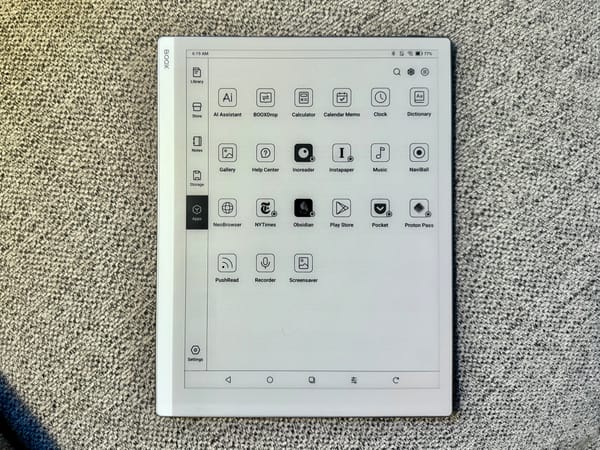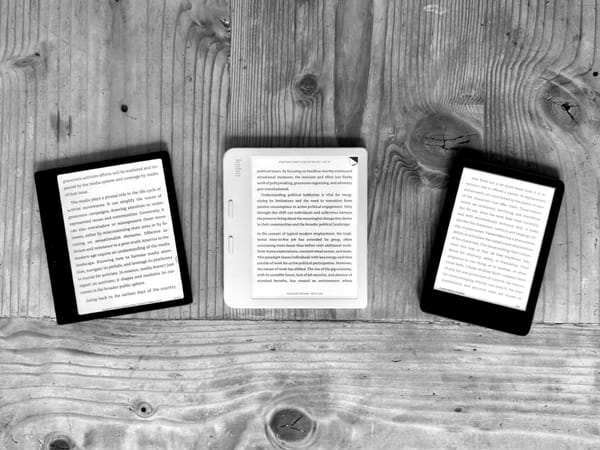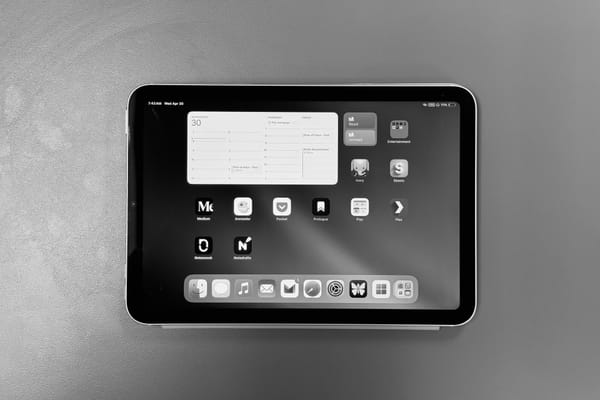Frustrating iPad Hot Takes
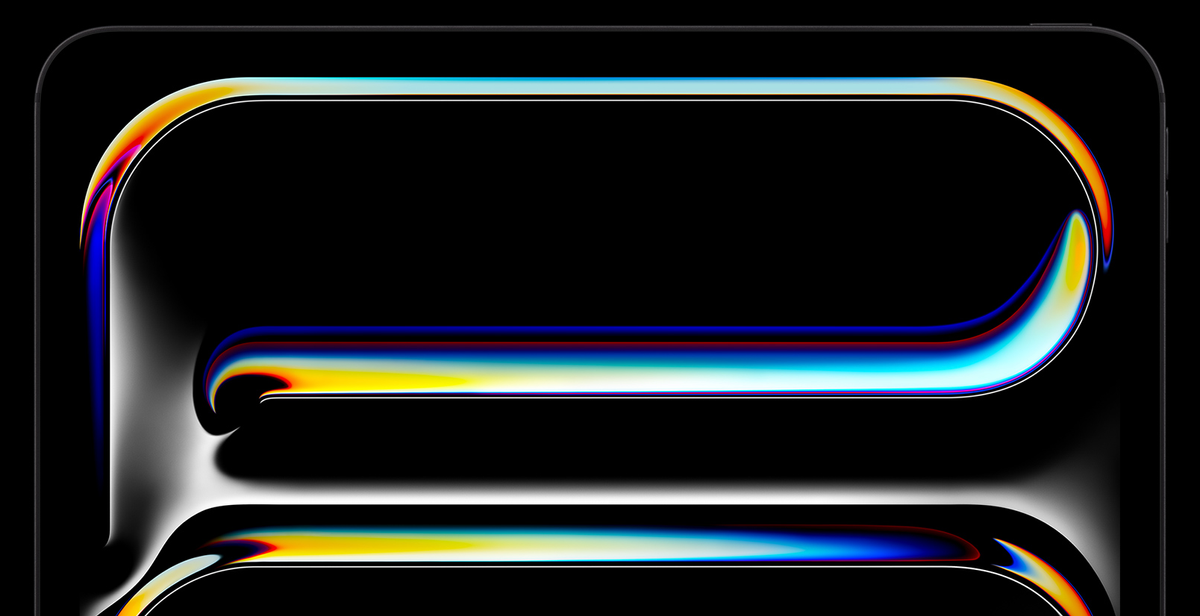
Interesting but mostly wrong.
Now that Apple has finally announced new iPad Pro hardware, that many have been waiting for. I thought it would be good to gather some hot takes from well known Apple Pundits and Technology journalists on what these new hardware offerings mean for the iPad.
I am focusing on podcasts for this post and may do a follow up with some hot takes from articles written or YouTube videos about the iPad's future. All of these views may change after WWDC coming up in June. But I highly doubt it, because as you will see in some of these takes, I don't think Apple has any chance of making some people happy.
This isn't an attack, but more of a review of how some of the most prominent people that talk about Apple view the iPad and its place. I plan to quote each persons views on the iPad Pro and its future and add my own commentary on why I think it is either true or misguided.
Upgrade
Since Upgraded inception I have been listening to Mike and Jason discuss Apple topics. It is a great podcast going over Apple news week by week. I haven't been listening to this podcast as much due to all of the segments they now have that don't all interest me, but am always excited to hear their thoughts on Apple's most recent announcements.
Jason: ...I need more reason to buy an iPad Pro over an iPad Air. And right now, what you got is OLED, face ID, and processor power, but really and and promotion. Right? But really, like, is it compelling enough for a large enough slice, or is that slice a little too small still?
My problem with what Jason is getting at here is would you say the same about a iPhone 15 Pro versus a iPhone 15, or a MacBook Air versus a MacBook Pro. In both of these comparison you can do probably almost everything the other can do, but one has some additional hardware features that some may prefer, just like when choosing an iPad Pro over the Air.
If you want to play candy crush, choose any phone (or iPad) you want. If you want a more improved camera system choose the Pro. If you want a Mac to write, choose anyone you want, if you prefer a better display choose the MacBook Pro. This isn't really that hard, but I feel like the iPad Pro is being put in the place of needing special justification where other hardware just isn't.
Jason: This product is amazing. And then we get to iPadOS and it's sort of like, you know, and I'm not a I'm not an iPadOS hater, but like it is I'm like it it cannot compare to the hardware work that Apple's doing right now. And if Apple fancies itself that its secret sauce is, the fusion of hardware and software working together, the story of the iPad for the last 6 years, if not longer, is that the software lets down the hardware. Yeah. And while the software has gotten better, the hardware has gotten a lot better.
The really hard thing for me in listening to Jason talk about iPadOS like this is that he is actually one who uses the iPad a lot. I know he has a Mac Studio and prefers that as his main computer, but saying that iPadOS has let down the hardware is just not true.
Especially when we look at all of the added features from iPadOS 15 to iPadOS 17 today. We got cursor support, Stage Manager, external display support, better pencil support, Final Cut Pro, Logic Pro, and Shortcuts continues to be more robust and feature-filled. iPadOS has continued to prove itself from being more than just a fork of iOS, but it just doesn't seem to get the credit it deserves.
Jason then goes on about how iPadOS still can't do some things, but it is very vague and I am not certain what parts of iPadOS he is speaking too. If it is software I will agree with him, but that isn't an Apple problem but more of a App Developer problem and those apps just not being developed on the platform.
Then he adds at the end of his point with this unbelievable beauty that I truly find insulting because iPadOS is not a big iPhone, and is especially insulting for all of those who use iPads as their main computers:
Jason: It's got some stuff it doesn't do, some stuff it does do. It's kind of a big iPad or a big iPhone, a little bit still.
Mike mostly agreed with Jason but I do want to touch on a one thing that Mike brought up in the conversation.
Mike: ...I mean, the the M4 is still emblematic of what I expect, which is the iPad's incredibly powerful, and I'm not gonna use any of that.
Again, do you use ALL of the power in you iPhone 15 Pro Max, do you use all the power in your Mac Studio with a M1 Max chip? Even those who do, how often do they do it. Many Apple Pundits argue that a M2 MacBook Air can be pushed to its limits to get you by when you need, but you don't need a MacBook Pro for those small occasions that you do.
So does that mean you shouldn't get a MacBook Pro? No. Get the hardware you want and if it is overpowered it is there if you ever need it, and if you never do who cares. I think one benefit of iPads being very powerful is that it offers longevity. Software, even the most basic, can require more power over time, so having that headroom for the future has always been something to consider for computers, why is it such a big deal on the iPad?
ATP
I love the Accidental Tech Podcast, I have been listening to these guys for many years now and love their take on many things related to Apple. Before I bring up their takes on the iPad, I do want to preface that all of them have used Macs for years and are software engineers. They don't use iPads primarily for their workflows or, in my opinion, use them enough to truly know what they are capable of.
Marco: how many people are, first of all, using an iPad in ways that can even use all of this hardware power? And then, second of all, how many people can justify paying this much for an iPad?
Just because maybe only a few people in few industries doesn't mean that having the most power available in your computer is bad. And to his second point, the price justifies the amount of power, but "can people use it?" is his main concern here.
He does clarify a bit later when he says:
Marco: I've said many times before, like, I think it's it's unwise for tech people to condescend to other people by saying, like, you don't need this benefit, this this resource, like, you won't use this, you know.
So what is his point then if people are allowed to buy what they want even if it doesn't make sense when it comes to performance and cost, why bring it up at all? This argument doesn't make sense to me when we think about other computers on the market that people buy.
The Mac Pro and 16-inch MacBook Pro are very beefy machines. Especially when you pack them with Max and Ultra chips. You know what else comes with those beefy computers? A huge price tag. People want great computers, even if they don't use it to its fullest potential. Why does any of this matter?
John: Yeah. So obviously, as we said before, the software side of this, it's just obviously the biggest problem, that's WWDC. We'll we'll have ample time to complain about it then.
They don't get into the specifics of what they mean by the software being the biggest problem, but I will grant John for wanting to wait until WWDC to dive deeper. My problem with this statement though is that it is being implied that there is a problem and Apple may fix it with iPadOS 18.
This idea that the Software or iPadOS is not good enough for the power and features that this new iPad Pro offers is just a continued trope that I feel is unwarranted and misleading to those who would benefit greatly in buying an iPad Pro as their main computer.
He mentions again:
John: There is a software side of this where we all agree they're dropping the ball. Right?
In my opinion no, there isn't a problem. But I digress. John does make a good point about some hardware features that should be on the iPad Pro in regards to ports that I think is very true:
John: The iPad Pro needs more ports. That's a hardware limitation. Now you can use external drives with Final Cut Pro. You can have Thunderbolt or whatever. What it's the MacBook 1 with a freaking M4 in it. Right? What if I wanna power my thing but also connect with Thunderbolt drive but also connect to USB? Sorry.
I think this is very interesting hot take and have not thought about this limitation with the iPad Pro. It doesn't need 50 or a variety of different ports, as John does mention later in the podcast, but more than one should be available at this point.
Casey: And I and I don't wanna derail us on another why is I why is iPadOS the way it is discussion, but, I I I just wish for more for iPadOS for my needs. Maybe not for your needs, but for my needs, and I just can't get that yet. And so for that for all of those reasons, I'm not in for this one.
I think Casey's response is the most truthful when it comes to preference for the iPad. Not saying that the John or Marco are lying, but in the grand scheme of criticisms out there about the iPad, I think many don't want to use the iPad because it can't do the things how they specifically want to do them, which is separate from if it can do it at all.
The Vergecast
Many know The Verge website and the cohosts Nilay Patel, Alex Cranz, and David Pierce. They have all written extensively on The Verge's website, and I have enjoyed their commentary about tech on the Vergecast.
It is a pretty common saying for both David and Nilay to use the saying "It's an iPad". Indicating that it is what it is, but the iPad is nothing special or hasn't been for awhile, which you can see leads to similar thoughts on the iPad as I have already covered with others above.
I also do want to mention that they titled this episode: The beginning and the end of the iPad–give me a break.
Alex: I just don't understand why anyone would buy the Air when the regular iPad exists and is got, like, what? It's got the same or it's got an A14. Okay. The iPad Air has an M2.
We are already starting off on the wrong foot here. David goes on to say that he thinks Apple is trying to justify why you would a more powerful chip for an iPad but again, that is not why most people buy their computers. Do most people need a M3 Pro? Probably not, but they want the XDR Retina Display and ProMotion or multiple port options.
People want a iPad Air over the standard iPad because they want the laminate display, better speakers, Magic Keyboard support, the lists goes on. Trying to make this about the M2 chip and do people really need certain amount of power is just nonsense since we don't say the same thing about other computers on the market.
Alex: I found some differences between the Air and the 10th gen iPad. Okay. The hover function on the new Apple Pencil will work on the Air.
Another thing you can add to the list above. It is all just a joke for these three. Forget all the other things that the iPad Air offers over the standard iPad, a bigger 13-inch model for instance which is a big deal, lets just make jokes about pencil stuff that you can get which, to them, is pointless.
To give them credit they do still list off some of the other features; brighter display, anti-reflective coating, and P3 color. But it is said in a way of, yeah, well, that's all. It is just silly.
David: I think a lot of people who want iPads don't want anything other than the pane of glass to hold in their hands. And for most of those people, I can't think of a single reason the Air is going to be, like, meaningfully better for you in your life than the regular iPad.
Nilay: And I think this points to just the problem, which is what is the use case for the iPad. And now, again, the hardware suggests that it is an expansive list of use cases. And to some extent, it is. Right? Like, some people, I am sure, produce music in Logic exclusively in an iPad. Those people are causing themselves an enormous amount of pain, but they're choosing to do it and that is their right as Americans. Sure. Fine.
I don't know how much of this I want to nitpick but what annoys me about this part of the conversation is that we are back to implying that most people just want a bigger iPhone to use on the couch, and for those who want to use Logic Pro on their iPad just enjoys suffering.
I went over why someone one would want a iPad Air over the standard iPad already, but for you to not understand why someone wouldn't want a laminated LCD screen or an OLED screen when using the iPad on the couch is just pretending to be clueless to me.
That people should just get the standard iPad because you don't care how good the display is as you just scroll through Facebook or watch Netflix is, in my opinion, just insulting and egotistical.
Nilay: I read my iPad Pro review from 2018 when it the first USB C one, and I'm like, why is this computer fighting me? Like, why is file management on the iPad so confused? Yeah.
Then continues a little later:
Nilay: But the the ultimate problem which is you have to fight the computer to get it to be a computer, like, remains as true for the iPad today as it did in 2013 when I was running iOS 7.
I think I have dissected these hot takes on this podcast enough at this point and Nilays responses here is a good sum up of how he and the rest feel about the iPad and iPadOS today. It is still a iPhone OS computer that can't do anything productive or useful unless you like pain.
One can argue all of these points, but I feel like I am becoming a broken record at this point. Instead of continuing to add my thoughts, I will recommend you read this post by Beardy Guy Musings that talks about how Files in iPadOS is very comparable to Finder in macOS:
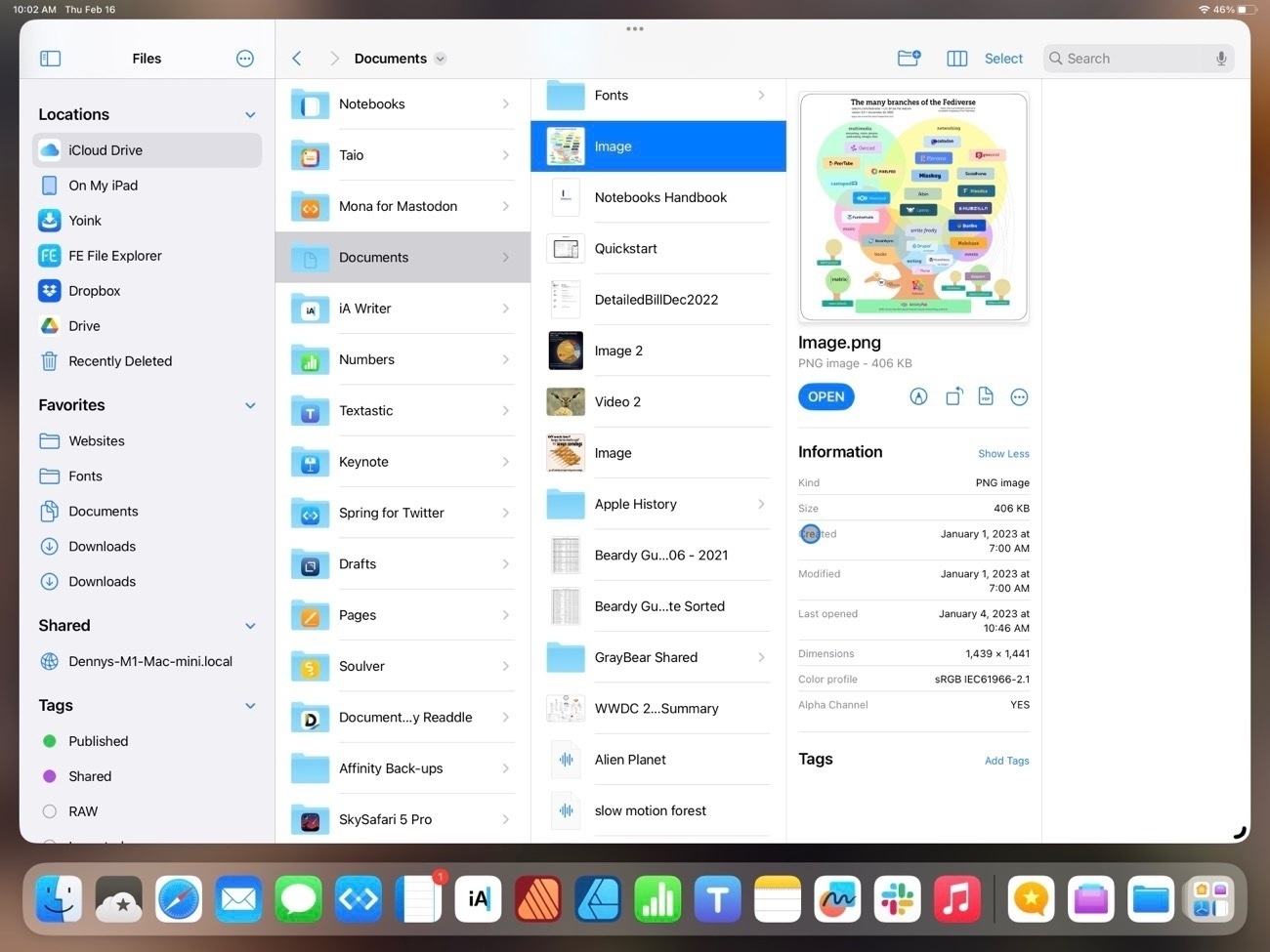
Mac Power Users
By the name of this podcast you already know these guys, David and Stephen, love the Mac. They are true Mac power users, but they also talk about Apple and have had many episodes going over the iPad. It is disappointing to say the least that when they start summarizing there thoughts on the event at the end of the episode this is what David starts out saying with Stephen agreeing:
David: So we got some updates to the pro apps, but, you know, iPad OS is still iPad OS. Yeah.
Stephen: It it is.
It is the same trend for all of these Apple Pundits, we love the hardware of these iPads but don't understand how iPadOS can utilize it. David does at least recognize that iPadOS shouldn't be macOS, and that he wants iPadOS to be its own thing but then says this:
David: Right? It's iPad. It's a different device, has a different, feature set, different customer base. We both talked about friends of ours, like your dad and my sister, who love the iPad because of its simplicity, and they specifically left the Mac because of that. So that is a big part of the customer base for the iPad. But those people are not looking to stretch the limits. The thing that's difficult is when they say, oh, we made this new thing. It's got the M4 Chip. It's the most powerful chip that Apple ships these days. And we put it in an iPad, and power users are sitting around scratching our heads trying to think, well, where am I gonna need that power?
Just to repeat the obvious, this is a podcast called Mac Power Users, so I think it is ironic that two people who see themselves as power users of the Mac would never have the same criticism for those who own a M3 Max chip and would never be able to push that processor to its limits. Even if they will never need that power.
Let alone the sly way of making iPadOS seem like a simple OS as if its main offering is to allow people to have a computer that can figure out the huge complexities of macOS. macOS can be used in a simple way too, and a iPad can be pushed in ways with Shortcuts that macOS might not be able too.
They then go into a clear missing feature on the iPad that is specific to them which is being able to record multiple audio streams for podcasting. You can do it and it requires additional hardware connected to the iPad but I get that the Mac does it easier.
But do you know one thing that Mac doesn't do as well as the iPad? Have cursor support for design. You need a Wacom tablet or other pen pointing device (or an iPad using sidecar) to connect to the Mac. Does that make the Mac less superior because you need additional hardware to do this one specific thing? No, so why put that burden on the iPad?
Stephen: the iPad is is still struggling to shake off its iPhone roots. And there's a lot of good that comes with that history, right, that it can run the same apps that the iPhone does. And it's intuitive, and billions of people know how to use it. But for those people who want more, whether in terms of just a general computer or something, you know, more powerful for professional work, that's where the iPad struggles. And you're totally right.
So Stephen does a couple of things here that I find odd. He first implies that the iPad hasn't been able to shake off its iPhone roots, as if iPadOS hasn't improved substantially over the last three years. But then says that it is that way because it is intuitive and can be accepted better because it is familiar. So is it having iPhone roots bad or good?
Then we get into the section that has been repeated many times already, that it can't be something that is powerful enough for professional work. Because the medical industry, airline pilots, lawyers (which David is a retired one by the way), doctors, writers, and a ton of other people in different industries are not professionals?
The odd thing about this sentence is he also mentions that it is also lacking for people who want more in terms of general computer? I don't get this at all. I at least understand the whole idea that the iPad can't be used for professional work, even if I don't agree with it, but the iPad and iPadOS is perfect for general computing. I thought the whole argument is that's all it's good at so why does it need so much power? But maybe I am reading way too much into this, lets move on.
I don't want to quote all of the conversation and recommend you listening to it yourself. But to summarize a good back and forth they had at the end of the podcast they both felt maybe Apple wants the Mac and iPad to be separate, that this idea that using a iPad like a Mac or vice-versa isn't their goal.
I think this is true and good on them for coming to this realization but I think it is coming from the wrong place. It seems they feel Apple wants to stagnate the iPad to force people to just buy a Mac if they need to do certain things. I don't think this is entirely true.
From my standpoint, I think you can do about 90-95% of the same tasks on both iPadOS and macOS. Their are some limitations on both, but mostly the Mac which has been around much longer and holds the title of having a "traditional" OS, has software that may never be available on iPadOS. Just like some software exists on Windows that will never be on the Mac.
But this idea that Apple is holding the iPad back purposely is my biggest problem with this sentiment. It implies that Apple only sees the iPad for people who want a simple computer that no power user will want to touch. Which is just completely and utterly ridiculous.
As for my closing remarks, what can I say but that I am exhausted. I am really trying not to be an iPad Fan Boy, I currently don't even use an iPad as my main computer. I have an iPad mini which I adore, but have moved to a MacBook Pro, not because it is better, but it is was I prefer right now.
I spoke about this when I recently moved away from the iPad Pro to a Zenbook (and then shortly after a MacBook Pro) in my Asus Zenbook 14X Review:
After using the iPad Pro for some time and going through my Pro Computer Guilt phase, I decided that I wanted a computer that did more for me. Not in the sense that the iPad Pro couldn’t do everything, but I prefer certain features for my main computer that the iPad Pro, at this stage, isn’t preferable.
I am still a very big defender and advocate of using an iPad Pro as a true computer that can do most things, if not everything, very well. I lean on the side of preference over capability when it comes to choosing a computer, and choosing the Asus Zenbook 14X has things that I definitely prefer compared to other computers.
It is all about preference, and I think that is lost a lot with many tech podcasters and other people who discuss tech and Apple. I think it is fantastic that Apple put a M4 chip in the iPad Pro. Does the high cost of the iPad Pro justify needing the M4 chip? I would say that I feel exactly the same about the M4 in the iPad Pro as I do with the M3 Pro in the MacBook Pro I am typing on now.
The M3 Pro is way more than I will probably ever need in a laptop. If one day I stumble upon some very high intense task that utilizes the M3 Pro to its max, I guess I will be happy that I have it, but if that never happens I won't be disappointed that the potential of the M3 Pro is left unused.
I chose this MacBook Pro because of the color, the keyboard, the display (ProMotion and Mini-LED), and because it has a SD card slot. There are so many other things that I appreciate about this laptop, and the performance that the M-chip gives me is just a bonus.
Most people outside of the tech-sphere buy computers that they want. Having the best chip just means they are getting the best product. Many would and will pay the high amount of money it costs to have a fantastic OLED iPad, they aren't worried that they may also be paying for a chip they will never use.
The iPad Pro and iPadOS are very capable computers. To say otherwise, especially with huge platforms like most of these people have, is just not being honest to your listeners. So many people could benefit from getting a fantastic iPad Pro, and even if they did want it for other reasons, may feel shamed in not getting it because it is being implied over and over again that it is a waste of money because it is overpowered and you are paying for things you don't need.
This attitude is ultimately why I am writing this post. I look up to many of these podcasters and hope one day they can be a little more honest and nuanced in how they approach platforms that they prefer not to use. For many, an iPad is a great all-around computer that can do so much, and they should be encouraged to get one, regardless of what chip is in it.



